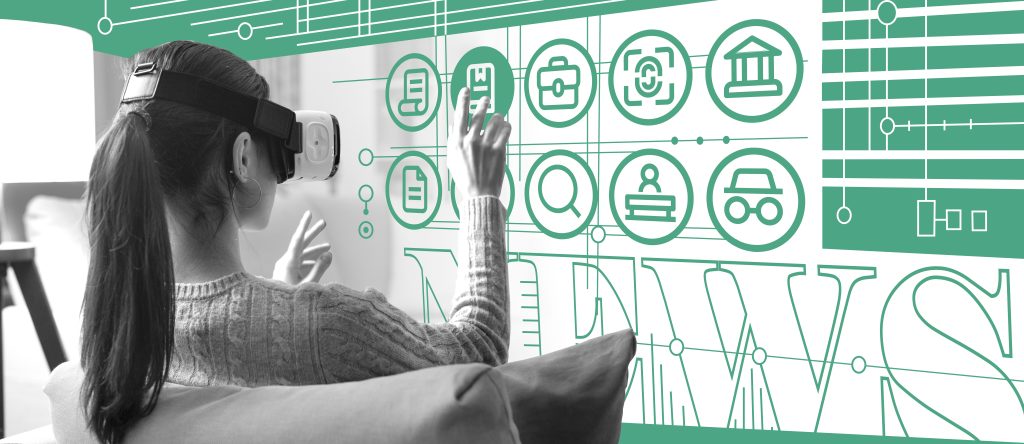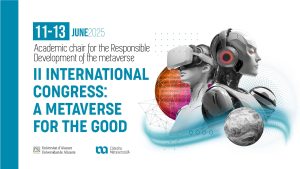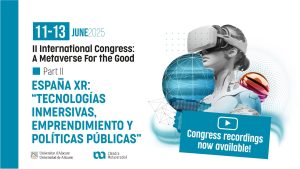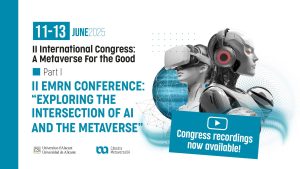
The MetaverseUA Chair Newsletter #2 - October 2023
Dear Metaverse enthusiasts,
We know you’re probably still recovering from the spookiest night of the year, so we’ve brewed up this wonderfully spooky newsletter to add some excitement to your transition back to everyday life.
So be ready for a terrific compilation of articles, legal texts, and other information of interest about Metaverse and AI.
About data and privacy
We’ve identified for you the EU’s most recent technology-related publications. The ones on non-personal data markets and artificial intelligence were particularly noteworthy. The AI-related documents touch upon areas such as its integration into the European public sector and the cybersecurity requirements imposed by the AI Act for high-risk systems. About personal data protection, here’s an article that conducts an analysis of international data transfers, which are vital for the implementation and management of the Metaverse.

Additionally, we encourage you to take a look at Freedom House’s report on the repressive potential of this technology in relation with e. g. freedom of expression.
Continuing in this fundamental-right field, you can read the Council’s conclusions on digital empowerment to protect and enforce fundamental rights in the digital age, which primarily underscore the need for everyone to have access to the necessary digital skills to understand and exercise their rights effectively.
From the Center for Research on Foundation Models (CRFM) at the Stanford Institute for Human-Centered Artificial Intelligence (HAI) there’s the not-to-miss report about the opportunities (main applications) and risks (security and privacy issues) of Foundation AI Models, which are those trained on broad data that can be adapted to a wide range of downstream tasks.
About the positive consequences of using AI
In 2019 Facebook AI, made available in open license, in collaboration with Matterport, the largest dataset ever created of 3D scans of house interiors to be used for the training of assistive domestic robots. Through such training, these robots are able to understand the complexities of real environments and recognize objects, rooms, etc … in very different contexts.
The success of this initiative led to the subsequent launch of Habitat 2.0, a next-generation simulation platform that allowed AI researchers to train virtual robots to interact with objects in photorealistic 3D environments. This platform was faster and more interactive than its predecessor.
Now, Meta presents “Habitat 3.0: a co-habitat for humans, avatars and robots”. As a novelty, the simulator also makes an assessment on the performance of robots alongside human companions to improve their efficiency.
We invite you to read this paper about the benefits of CHAT GPT-4 at work as it significantly increases productivity: tasks are completed quickly and better.
Finally, we recommend you follow the Everypixel Journal website closely. Its last article on How AI Fosters Social Good takes into consideration the positive impact of AI for achieving good health, well-being and for reducing inequality, all of which are part of the Sustainable Development Goals set forth by the United Nations.
Last but not least… transparency and ethics.
We cannot turn a deaf ear to the ethical risks inherent in the Metaverse. Precisely our Line of action number 4 focuses on “Moderation of content and behaviour in the metaverse”. But those ethical risks arise when using AI too. That’s why our last section compiles several articles related to this multidimensional issue.
To begin with, you may want to take a look at the paper from CRFM and HAI in which they create a system that scores 100 different aspects of AI transparency. Also from HAI, there is another report that tracks and visualizes data relating to AI enabling decision-makers to take ethically and meaningful action to advance AI.
Again on Foundation Models here is the report “Generative AI”, from the Minderoo Centre for Technology and Democracy at the University of Cambridge. It concludes that the UK should invest in the growing ecosystem of start-ups developing new applications or uses from existing Foundation Models.

Finally, the ethical implications of Metaverse can be perceived even in virtual data-driven smart cities. On one hand, there’s a study from the Norwegian University of Science and Technology that emphasizes the need of going deeper in the understanding of the imaginaries of those cities through the analysis and evaluation of the Metaverse. On the other, here is a nice article from Bibri and Allam about the need of developing guidelines to address those concerns.
And that’s all for this issue of our newsletter. We will continue to explore this Wonderland ready to bring you more exciting news to enjoy at tea time.
May your code run smoothly, and your quests be grand.
Latest news & events
-
 24 Oct 2025 NewsMetaverseUA Chair Newsletter #21 – October 2025
24 Oct 2025 NewsMetaverseUA Chair Newsletter #21 – October 2025 -
 28 Jul 2025 NewsHit play: Recordings from the II International Congress now available!
28 Jul 2025 NewsHit play: Recordings from the II International Congress now available! -
 28 Jul 2025 Activity logII International Congress: A Metaverse for The Good Part II: EspañaXR - Tecnologías inmersivas, emprendimiento y políticas públicas
28 Jul 2025 Activity logII International Congress: A Metaverse for The Good Part II: EspañaXR - Tecnologías inmersivas, emprendimiento y políticas públicas -
 28 Jul 2025 Activity logII International Congress: A Metaverse for The Good Part I: II EMRN Conference – “Exploring the Intersection of AI and the Metaverse”
28 Jul 2025 Activity logII International Congress: A Metaverse for The Good Part I: II EMRN Conference – “Exploring the Intersection of AI and the Metaverse” -
 21 Jul 2025 NewsMetaverseUA Chair Newsletter #20 – July 2025
21 Jul 2025 NewsMetaverseUA Chair Newsletter #20 – July 2025




